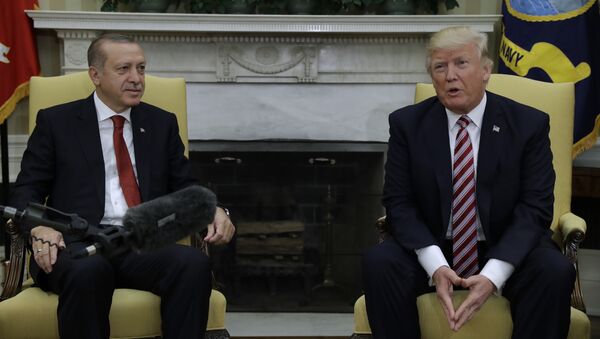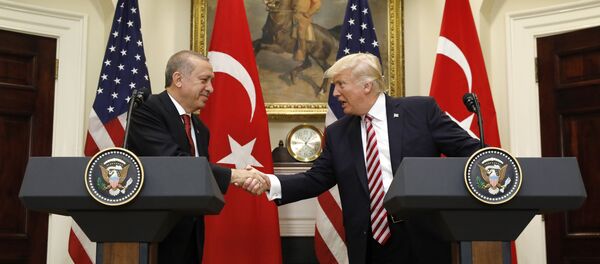"We held extensive negotiations, during which we exchanged views on the US agenda, the issue of Turkish-American relations and developments in the region." the politician told Sputnik Turkey.
"I must say that the US attitude toward Turkey, especially after the referendum on constitutional amendments held in April, has significantly changed. There is a sharp criticism against Turkey. Turkey is increasingly perceived as a country that deviates from democratic principles and moves towards authoritarianism," he added.
The referendum expanding presidential powers took place in Turkey on April 16, with over 51 percent of voters supporting the proposed amendments that expanded presidential authority over the legislature and the judiciary. The Organization for Security and Co-operation in Europe and the Parliamentary Assembly of the Council of Europe criticized the referendum as unfair.
"It would be naive to expect that the relations between the two countries will suddenly improve and all existing differences will be overcome. The ties between the countries will develop gradually only if both sides are able to give a certain systematic character to their relations, bring them to a constructive level, taking into account common interests and sensitive moments. However, now, unfortunately, we see that both the Turkish authorities and the American administration are far from that," the politician concluded.
Earlier this month, the US director of national intelligence said that domestic tensions in Turkey have increased since the constitutional referendum that increased Erdogan's powers.
Coats added that US-Turkish relations are also under pressure over the issue of extraditing Fethullah Gulen, a Turkish cleric living in the United States whom Ankara blames for orchestrating a failed coup last July.


